- Home
- Shirlee McCoy
The House on Main Street Page 3
The House on Main Street Read online
Page 3
“Makes me wish I was a woman.”
“There are a lot of single women in town who would be devastated if you were.” She blew a kiss and walked off.
He couldn’t fault himself for watching her go. She’d lost weight, but she still had curves, and he was a man who appreciated them.
A short yellow school bus rumbled down the road and pulled up behind Cade’s cruiser. He waited, watching as the door opened. Seconds later, Alex Riley appeared, skinny shoulders hunched, head bobbing to some silent tune.
Poor little Alex Riley. That’s what the blue-haired ladies at the diner always whispered when the Riley family walked in for the Friday-night special. They’d be whispering more now that Alex had lost both his parents.
“Hey, Alex. How’s it going, buddy?” Cade asked.
Alex shuffled past, humming under his breath, his hair golden red, his eyes the same clear blue as his mother’s had been.
“Home,” Alex whispered as he opened the gate and walked into the neglected yard. If Alex were his son, Cade would have walked with him, put a hand on his shoulder, led him up the crumbling cement walk to the overburdened front porch.
The thought wasn’t as bitter as it used to be.
Cade waited until the bus pulled away, then climbed into his cruiser and headed back to the station, the box with Miriam’s angel gleaming white on the passenger seat.
Tessa stepped away from the window as Cade’s car disappeared from view. Thank God, he hadn’t seen her when she’d ducked behind the dusty drapes. Not that she’d been standing in the window watching him talk to Charlotte. She’d been waiting for Alex’s school bus. It just so happened that Cade and Charlotte had been right in her line of sight. It also just so happened that she hadn’t turned away when she’d realized that they were.
“You’re an idiot, Tess,” she hissed as the front door opened and closed and footsteps tapped on wood stairs.
Alex. Going straight to his room just like he had every day for the past week.
Her heart thudded painfully as she opened a trash bag, grabbed a bunch of old clothes from a decorative box, and threw them away.
“You going up there to check on him?” Gertrude asked, perched on the stool again and tapping a cigarette on her scrawny thigh.
“Don’t smoke in the house, Gertie. It’s bad for Alex.” Tess ignored the question, because she didn’t want to go upstairs and she didn’t feel right not going.
Gertie frowned at the cigarette as if it had jumped into her hand and was about to light itself. “You know, up until last week I hadn’t had a cigarette since he was born.”
“Smoking isn’t going to bring Emily back.”
“Neither is avoiding Alex. Are you going up there or not?”
“He’s happier by himself.”
“You wouldn’t be saying that if you’d spent any time around him.”
“I’ve spent every Christmas of his life with him.”
“So, what’s that? A hundred hours in ten years? You want the ‘Aunt of the Year’ award for that?” She broke the cigarette in half and tossed it out the door.
“What I want is my life back.”
“I bet Emily does, too. Bet Dave does. At least you’re alive and breathing. I’ve got to get out of here. I’ve got a hair appointment with Adele in ten minutes. If I’m late, she won’t be happy. See you in an hour.”
“But—”
Too late.
The front door closed. The house fell silent. She was alone with her nephew, and she had no idea what to do about it. She loved Alex. She did. Had loved him from the moment she’d seen his fuzzy reddish hair and startling blue eyes. Emily’s eyes. Tess would give anything to look in them one more time.
Music flowed from the upstairs apartment, the sound like a thousand raindrops falling on tender new grass. Soft and sweet and heartbreaking. Tess followed it through the dingy overstuffed store and up the stairs into the apartment.
This, Emily had done right. Large bright rooms and dark woodwork. The integrity of the Victorian maintained in patterned wood floors and Queen Anne furniture. Nothing fussy or cluttered or overdone. A large kitchen and living room had been carved out of several small rooms, and a wide hall led to the apartment’s bedrooms.
Alex’s door was closed.
Tess could take it as a sign that he wanted to be left alone.
That’s what she wanted to do, but Alex was Tessa’s responsibility, and she could hear his heartbreak in the song that poured from his room.
She knocked.
Waited a minute and opened the door.
Music swirled around her, sucking her into the world Alex created, his head bent over an upright piano, his fingers flying over yellowed ivory keys.
A twin bed stood against the far wall, blue blankets and sheets and pillowcase neat and tidy. Everything in the room was neat, tidy, and blue. Walls. Curtains. Throw rug on the dark wood floor. Even the old upright piano had been stripped and then painted glossy sapphire blue. Light from the window reflected off its gleaming surface and splashed across Alex’s face, glinting on his tearstained cheeks.
Tessa had never seen him cry.
Not the day he was born. Not in the hundred hours of time Gertrude had thrown in her face. Not at the funeral.
“Alex?” She touched his arm.
He just kept playing, his knobby shoulders hunched, his eyes closed.
If only she didn’t love him so much, she could leave him to his music and his world. But she did, and that was so much harder than she’d ever thought it would be.
“What is it, Alex? Do you miss your parents? Is that why you’re crying?”
The sad, seeping music continued, and her heart broke more with every keystroke, with every tear that dropped onto ivory keys.
“You’re going to make yourself sick, buddy.” She gently lifted his hands and closed the piano lid, the silence deafening, her heart thundering with uncertainty.
Right?
Wrong?
She didn’t know, because she didn’t know this boy with his copper hair and distant eyes.
“Home,” Alex said so quietly she wasn’t sure he’d actually spoken.
“What?” She touched his cheek, her heart shattering as she looked into his eyes. Emily’s eyes.
God, she wanted to do this right.
“My home.” Alex’s words were raw and rusty and soft.
She heard them clearly, though.
Just be finished with it, Tess thought. Walk away. Pretend you don’t know that he wants to stay.
Alex’s fingers tapped against the piano lid, his gaze darting her way, tears still dripping down his face.
“I get it,” she forced out past the lump in her throat. “This is your home. We’ll stay in it, okay? We will. I promise.” She lifted the piano lid so that his fingers fell against the keys. Just a moment of hesitation and he was playing the same sad melody.
She wanted to cry for him and for Emily and for Dave. Maybe even for herself, because there was no way she could go back to Annapolis now. She’d have to sell her brownstone, put in her resignation and . . .
What?
Find a job as an interior designer in Apple Valley, Washington?
That wasn’t going to happen.
She’d have to think of something, though. Emily and Dave hadn’t been the kind of people to invest in life insurance. All they’d owned was the house and the stuff in it. Alex’s therapy had been expensive. There hadn’t been money for anything else.
So, maybe they had done the best they could with what they had, and maybe Tessa had let frustration color her perspective.
But she had a life she’d worked hard for.
She’d had a life.
Now she had Alex and Gertrude and an old Victorian filled with junk that no one wanted.
Things’ll work out just fine, she could swear she heard Emily say as she walked out of the room and left Alex to his music.
Chapter Three
“Hey, boss,
you heading out soon?” Max Stanford walked into Cade’s office like he owned the place, his uniform perfectly tailored, his shoes polished, every blond hair in place. Guy looked like he spent hours in front of the mirror. If Cade hadn’t liked him so much, he’d have despised him on principle.
“In a minute.”
“Your shift ended a half hour ago.” Max leaned against the doorjamb, his arms crossed. A transplant from Los Angeles, he’d patrolled some of the toughest beats in the country and had worked his way up to homicide detective with the LAPD before following his girlfriend to eastern Washington five years ago. They’d broken up two years ago, but Max had stuck around.
“Since when do you keep track of my work schedule?” Cade saved the file he was working on and closed down his computer.
“Since I heard you were going to have dinner with Gertrude McKenzie and her niece.”
A dinner he would be late for, Cade thought as he glanced at the clock ticking away the time. “You’ve been talking to Ida.”
“I rent her garage apartment. Talking to her isn’t unusual,” Max responded dryly.
“You discussing it with me is. So, what’s up?”
“Ida asked me to make a display case for that angel you gave her. I blame you for that.”
“Blame yourself. You should never have let my grandmother know you were more than a pretty face,” Cade said, and Max smiled.
“My pretty face did a hell of a better job at the gun range this morning than your ugly one. Or have you forgotten that?”
“First time in five years you’ve out-marked me. I’m not sure that’s something I’d be bragging about.”
“What? You’re not going to throw jet lag in my face and ask me to buy that as your excuse?”
“I don’t make excuses, Stanford.” He stood and stretched out the kinks in his neck and back. “But if you’re offering one . . .”
“Forget it. I’ll take bragging rights where I can, but that’s not what I wanted to discuss. The way I see things, if I hadn’t agreed to make that display case for Ida, you’d be stuck doing it.”
“And?”
“I want a date with that gorgeous redhead I saw coming out of This-N-That Antiques the other day.”
“Tess?”
“If Tess is Gertrude’s niece, then, yes. Since you’re going to Gertrude’s for dinner tonight, I thought you could put in a good word for me.”
“Forget it.” Cade stood and grabbed his coat from a hook near the door.
“You’re saying she’s off-limits?”
Was he? Cade thought of the quick shot of heat that he’d felt when he’d touched her arm. A fluke. Some strange by-product of jet lag. It hadn’t meant anything, but old friendship did. “I’m saying she’s an old friend, and I’m not going to set her up with a guy who’s broken every female heart between here and the Cascades.”
“Painful, Cunningham.”
“Exactly. I need to head out. See you tomorrow.” Cade walked down the narrow hall and into what had once been three holding cells but was now a lobby. Old brickwork and high windows with bars gave the feel of a bygone era, the modernized building retaining its turn-of-the-century charm.
A large Christmas tree stood in the corner of the room, decorated with silver tinsel and colorful gift cards that the townspeople were donating to a homeless shelter in downtown Spokane. Emma Bradley’s idea, and a good one. She’d had quite a few of them since being hired as full-time dispatcher in the spring, including the fancy coffeemaker on the corner of her desk and the plate of cookies sitting beside it.
He snagged one as he walked by.
“Heading out, Sheriff?” Emma asked without looking up from her computer. Fresh out of college with a degree in criminal justice, she’d planned to go to law school but had come home from Seattle to care for her ailing father.
“Yeah. You should be, too.”
“Should be, but the last thing I feel like doing is going home. Dad’s on a rant about the new medication the doctor has him on. Thinks he’s being poisoned.” She rubbed the bridge of her nose, her gray eyes deeply shadowed.
“How’s the new caregiver working out?”
“Dad thinks he’s a Mafia hit man. Fortunately, Jake doesn’t seem to mind. Hopefully, he’ll stick around for a while. I’m about out of leave.” She tugged at a strand of straight brown hair. Mousy and sweet, she was the youngest of ten children, and the only one who’d cared enough to return home when Rick was diagnosed with Alzheimer’s.
“If you need time off, take it.”
“Unpaid leave won’t pay the bills, Cade.”
“We’ll work something out,” he offered, but she shook her head.
“I wouldn’t feel right if I didn’t earn what I was paid. Besides, being here is a lot easier than . . .” She shook her head. “Things are going fine for now. That’s what matters.”
“Like I said, if that changes, we’ll work things out.”
“Meaning you’ll try to pay me for work I’m not doing. That’s not how I do things.”
“You can repay me in cookies.” He grabbed another one from the plate and left. No need to give her time to respond. The people he worked with were like family, and he’d been raised to take care of his own.
Cold air whipped through his coat, the noisy hubbub of the town center enveloping him. A few people called greetings as he climbed into his Ford F-1. He smiled and waved, but he wasn’t much in the mood for stopping to chat. Offering to help the McKenzie women had seemed like the right thing to do at the time, but he wasn’t all that excited about heading back to the old Riley place.
He’d spent plenty of time there as a kid, hanging with his buddy Dave, sneaking through the old rooms, whispering so they wouldn’t disturb old man Riley. The patriarch of the family, he’d been the great-grandson of the town’s founder, but Dean Riley hadn’t had the work ethic or community mindedness that had made Daniel Riley the beloved first mayor of Apple Valley. As a matter of fact, for as long as Cade could remember, Dean had been known for being a grumpy old miser.
He’d become a legend in his own right after he’d died.
Not the kind of legend Cade wanted to be, but he guessed the old guy would be laughing his ass off if he knew that people in Apple Valley were still talking about the fortune that Dean had supposedly stashed away somewhere in town.
Cade didn’t buy into the story, but he sure spent a lot of his time busting grave robbers and treasure hunters who did.
He put the truck in gear and drove down Main Street. Christmas lights hung from the eaves of every building. More lights sparkled in the trees and reflected off the smooth surface of the pond that sat in the middle of Riley Park, a perfect winter wonderland that still hinted at the gardens that had once been there. Even the little white church that stood on a knoll overlooking the pond sparkled, its simple nativity scene spotlighted in a halo of golden light.
The place was as familiar to Cade as an old friend, and he loved every bit of it. Sure, he’d wandered over the years, gone overseas and served in the military, but no matter where he’d wandered, Apple Valley was home.
He followed Main Street away from the town center, continuing on the two-lane road until it narrowed. Here, the houses were old and stately, the lots larger. The largest of all was the Riley property. Three acres just a mile from the hubbub of the town center.
He pulled over, parking his truck at the curb. Lights shown from nearly every window, splashing onto the dried-out yard. A CLOSED sign hung from the front door, and the large store flag that Emily had hung five years ago drooped from one of the porch support beams, its letters and colors faded by hot summer sun and harsh winter weather.
He rang the doorbell and the door opened immediately.
“You’re late. My pot roast is drying out,” Gertrude griped, the silly Santa hat still perched on her head. It didn’t cover her hair. Hair that had gone from vivid orange to faded pink.
“New look, Gertrude?”
“You want
to see a new look? Go to Adele’s Hair Emporium tomorrow after I’ve rearranged her face.”
“You know I can’t condone that, right?”
“And you condone this?” She touched her hair and glared.
“What happened?”
“I pissed her off, that’s what happened. Five minutes late for my appointment. Of course, she says it was an accident. Old hair dye or something. Says she’ll fix it in the morning. As if I would let her touch my hair again. Come on. If we’re going to eat, we better do it before my roast turns to jerky.”
Cade followed her up the wide, curving staircase. Flowered wallpaper peeled away from the plaster wall. Dingy carpet treads curled up at the edges. As far as Cade could tell, nothing had changed in the years since he’d been there. Not for the better anyway. Everything was just a little older, a little dustier, a little worse for wear.
A cluttered landing held a boatload of old things. Three doors used to open off the landing. Now an archway led into a large living room–kitchen combo. No clutter here. Just comfortable furniture and clean but outdated appliances.
A small round table stood near the kitchen area, and Gertrude gestured toward it. “Go ahead and have a seat. Tess! Alex! Time to eat.”
She slammed a pot of something that smelled really good onto the table and huffed to the refrigerator.
“You’re not taking your mood out on Cade, are you?” Tess asked as she walked into the room with Alex.
“Who says I’m in a mood?” Gertrude dropped a bowl of salad onto the table and glared at her niece.
“Me. You’ve been griping since you got home from your hair appointment.” Tess pulled out a chair for Alex, the curve of her hip a half foot from Cade’s face.
The very nice curve of her hip.
That little zing of heat shot through him again, and he looked away.
“If I want to gripe, I’ll gripe. At my age, I’ve earned the right.” Gertrude settled into the chair next to Alex. “It’s pot roast tonight, honey. You know how you love my pot roast.”
Alex tapped his free hand on the tabletop, his fingers dancing along the scratched Formica. He made no move to eat the pot roast Gertrude scooped onto his plate, just hummed quietly while Tess buttered a roll and set it on a napkin next to his hand.

 Home at Last
Home at Last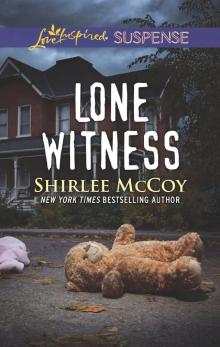 Lone Witness
Lone Witness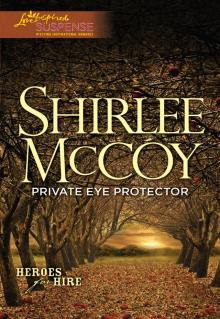 Private Eye Protector
Private Eye Protector Valiant Defender
Valiant Defender Running Scared
Running Scared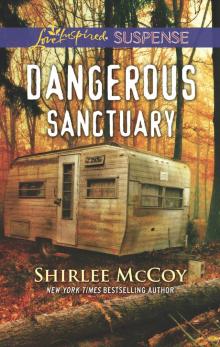 Dangerous Sanctuary
Dangerous Sanctuary Capitol K-9 Unit Christmas: Protecting VirginiaGuarding Abigail
Capitol K-9 Unit Christmas: Protecting VirginiaGuarding Abigail Hidden Witness
Hidden Witness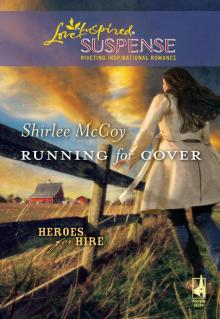 Running for Cover
Running for Cover Gone
Gone Valley of Shadows and Stranger in the Shadows: Valley of ShadowsStranger in the Shadows
Valley of Shadows and Stranger in the Shadows: Valley of ShadowsStranger in the Shadows Home with You
Home with You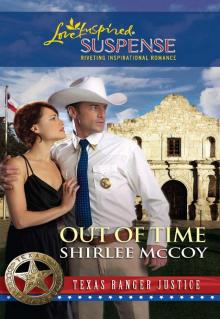 Out of Time
Out of Time Deadly Christmas Secrets
Deadly Christmas Secrets Lone Defender (Love Inspired Suspense)
Lone Defender (Love Inspired Suspense)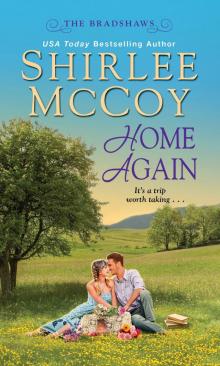 Home Again
Home Again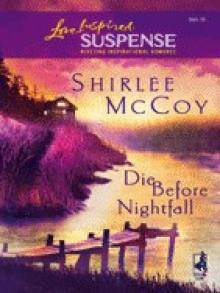 Die Before Nightfall
Die Before Nightfall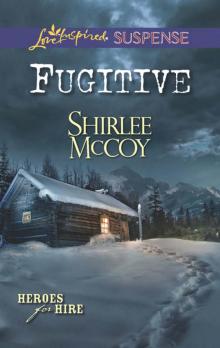 Fugitive
Fugitive Deadly Vows
Deadly Vows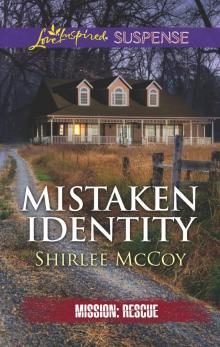 Mistaken Identity
Mistaken Identity Capitol K-9 Unit Christmas
Capitol K-9 Unit Christmas The Christmas Target
The Christmas Target SB01 - The Guardian's Mission
SB01 - The Guardian's Mission Sweet Surprises
Sweet Surprises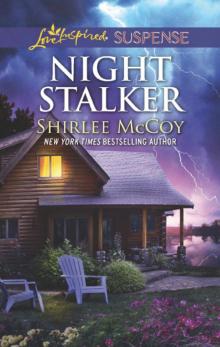 Night Stalker
Night Stalker The Cottage on the Corner
The Cottage on the Corner Love Inspired Suspense January 2014
Love Inspired Suspense January 2014 0373447477 (R)
0373447477 (R) Love Inspired Suspense March 2015 - Box Set 1 of 2: Protection DetailHidden AgendaBroken Silence
Love Inspired Suspense March 2015 - Box Set 1 of 2: Protection DetailHidden AgendaBroken Silence SB03 - The Defender's Duty
SB03 - The Defender's Duty Love Inspired Suspense June 2015 - Box Set 2 of 2: Exit StrategyPaybackCovert Justice
Love Inspired Suspense June 2015 - Box Set 2 of 2: Exit StrategyPaybackCovert Justice The Protector's Promise (The Sinclair Brothers)
The Protector's Promise (The Sinclair Brothers) Bodyguard
Bodyguard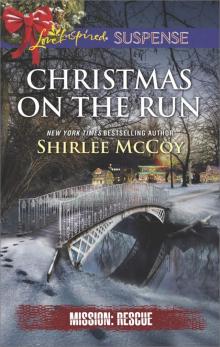 Christmas on the Run
Christmas on the Run The Orchard at the Edge of Town
The Orchard at the Edge of Town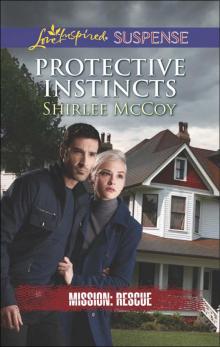 Protective Instincts
Protective Instincts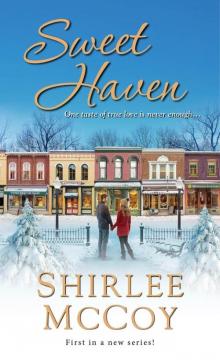 Sweet Haven
Sweet Haven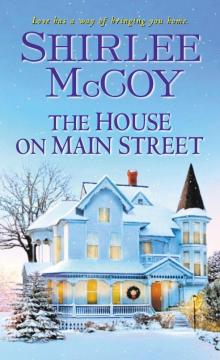 The House on Main Street
The House on Main Street Her Christmas Guardian
Her Christmas Guardian Undercover Bodyguard
Undercover Bodyguard